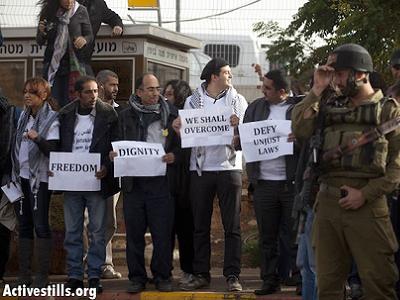
In a recent article published in Middle East Monitor, British writer, Ben White argued that the British Guardian newspaper is excluding Palestinian voices from its commentary pages. White based his assertion on statistical research, in which he also found that voices of Palestinians on the ground are almost completely absent from the paper.
“This time last year, I carried out an informal survey of how The Guardian was covering the issue of Palestine and Israel in its comment pages. The results were not good,” White wrote.
“Out of 138 op-eds on the topic published by the newspaper in its ‘Comment is free’ section from October 2013 to November 2015 (including both print and online-only articles, as well as content from The Observer), just 20 were written by Palestinians – 15 per cent of the total,” he added.
“By contrast, 39 op-eds (28 per cent) were written by Israelis, including six by state officials or diplomats, and four by opposition politicians. The statistics told a clear story: The Guardian was excluding Palestinians from its comment pages.”
“If any ‘narrative’ emerges from these 20 op-eds, it is that Israeli politics is lurching rightwards, Israeli liberals and human rights NGOs are under pressure, and a two-state solution looks increasingly unlikely. All of which contains some truth, of course, but is also deeply inadequate.
“The quantity and focus of the comment coverage speaks to a sense of priorities. For example, in the last year, there was just one op-ed each on the following three topics: Israel’s acceleration of home demolitions and displacement; settlements; and Israeli forces’ extrajudicial killings of Palestinians.
“By way of comparison, there were three pieces purely on Israel’s rightward drift (by Jonathan Freedland, liberal Zionist activist Hannah Weisfeld, and journalist Mairav Zonszein).
“Perhaps the most instructive absence from The Guardian’s comment coverage is the voices of Palestinian activists and human rights defenders on the ground. Strikingly, over the past year The Guardian has not published a single op-ed by a Palestinian in the occupied West Bank and Gaza Strip.
“This seems to be a wider problem for liberal and progressive publications, not limited to The Guardian. Back in May, I reported how the last piece written by a Palestinian in the ‘Middle East’ section of the New Statesman magazine was from July 25, 2014. That’s still the case.
“On 29 April, Jonathan Freedland rehashed his hand-wringing defence of the Nakba, while, on the anniversary of Cable Street, The Guardian gave a platform to the Israeli ambassador to attack “leftwing antisemitism…[that] conceals itself behind the mask of anti-Zionism.”
“Compare this to the US and Israel itself, where debate about and explicit opposition to Zionism has appeared in the likes of the Los Angeles Times (suppressing “criticism of Zionism” is “catastrophic censorship”), and Israeli site 972mag (“It’s 2016 — let’s say goodbye to Zionism once and for all”).
“In April, The New York Times ran a special ‘Room for Debate’ on Zionism which featured five op-eds – including by Palestinians – where a genuine range of views were expressed – including “Anti-Zionism can and should be anti-racism” and “Zionism justifies discrimination and oppression”.
White concluded,
“These are not the perspectives, however, that The Guardian’s comment editors apparently think British readers want or need. As shown by the absence of voices from the West Bank and Gaza, or the lack of a Palestinian perspective on critical issues such as Zionism, when it comes to The Guardian’s comment pages, Palestine is just not a story – and when it is, it’s an Israeli one.”




